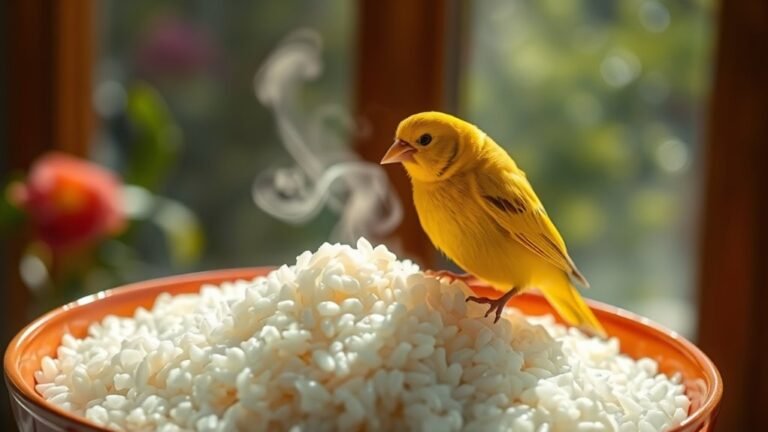Bird Poop on You: What Does It Symbolize?
Bird droppings landing on you may annoy you at first, but they carry more meaning in different cultures. Many people see this as a sign of good luck or fortune. From a scientific view, bird droppings play a key role in nature. They help return nutrients to the soil. By looking closer at this event, you can start a conversation about nature's surprises and what luck really means to us.
Key Takeaways
- Bird poop is often seen as a symbol of good luck and unexpected fortune across various cultures.
- The occurrence can represent change and new possibilities, reflecting a shift in one's circumstances.
- In some traditions, bird droppings serve as protective charms, enhancing feelings of security and positivity.
- Scientifically, bird poop enriches soil fertility, emphasizing a positive environmental connection between nature and humans.
- Finding bird poop on you encourages a humorous acceptance of life's messiness and unexpected events.
The Historical Significance of Bird Poop

Bird poop has an interesting place in history, carrying meanings that go beyond its appearance.
Many cultures see bird droppings as symbols of good luck and fortune. People often believed that getting bird poop on you meant that wealth was coming your way.
Birds are seen as messengers, and their waste represents change or new possibilities. This shows how humans connect with nature, reminding us that even something like bird poop can play a role in cultural stories and shared beliefs throughout time.
Cultural Beliefs and Superstitions
Bird poop holds different meanings across cultures. Many people view it as a sign of good luck and unexpected wealth.
In some African tribes, bird droppings serve as protective charms against negative energy. Specific birds, like white doves, have unique associations; their droppings symbolize purity and peace.
These beliefs show how cultural backgrounds influence perceptions, creating connections among communities worldwide.
Bird Poop as a Symbol of Good Luck

Bird poop is often seen as a symbol of good luck in many cultures. People believe that when bird droppings land on you, it can bring unexpected fortune.
The randomness of such an event might feel humorous, but it reflects the nature of luck itself. This belief spans from ancient societies to modern times, showing a psychological link between surprise events and positive outcomes.
Embracing bird poop as a symbol can foster community and encourage optimism in life's unpredictability. It adds a fun twist to the idea of good fortune.
The Cleansing Power of Bird Droppings
Bird droppings, often seen as a sign of good luck, have surprising benefits. Bird guano is high in nitrogen, phosphorus, and potassium, which are essential nutrients for soil. This natural fertilizer helps improve the health of various ecosystems.
Additionally, bird droppings can be used in skin cleansing rituals. These rituals remove dead skin and impurities, acting as a natural exfoliant.
Therefore, rather than being just a nuisance, bird droppings offer unique advantages for both the environment and personal care. They can help us connect with nature in unexpected ways.
Interpretations Across Different Cultures

Many cultures interpret bird droppings in different ways, reflecting their beliefs and interactions with nature.
For example, some Indigenous cultures view bird poop as a symbol of good fortune, representing prosperity or blessings. In certain Asian cultures, people include droppings in rituals, seeing it as a divine connection or an omen of change.
People have varied opinions; some see it as bad luck, while others view it as a sign of new beginnings. Understanding these interpretations helps us appreciate how different societies find meaning in everyday events, creating a sense of connection among those who share these stories.
The Science Behind Bird Poop and Its Benefits
Bird droppings, often seen as waste, are important for ecosystems and agriculture because they contain many nutrients. These droppings help recycle nutrients, adding key elements like nitrogen, phosphorus, and potassium back into the soil.
Here are the benefits:
- Soil Fertility: Bird droppings improve nutrient levels in the soil, which helps plants grow strong and healthy.
- Ecosystem Health: They support various organisms and food webs, contributing to a balanced ecosystem.
- Sustainable Practices: Using bird droppings as fertilizer lowers the need for chemical fertilizers, which is better for the environment.
Overall, bird droppings are a valuable resource. They support plant growth, enhance ecosystem balance, and promote environmentally friendly farming methods.
Embracing this natural fertilizer can lead to healthier gardens and fields.
Embracing the Unexpected: Lessons From Bird Droppings
Bird droppings appear in our environment and teach us valuable lessons. They remind us to rethink our views on waste. These moments show that life's lessons can come from unexpected sources, encouraging us to accept chaos when it happens.
Bird droppings prompt us to shift our focus from seeking perfection to embracing acceptance. They help us appreciate spontaneity and recognize nature's surprises as chances for growth.
The Role of Bird Poop in Nature
Bird droppings are often seen as bothersome, but they play an important role in nature.
Here are three key benefits of bird poop:
- Natural Fertilizer: Bird droppings contain high levels of nitrogen and phosphorus. These nutrients are essential for the growth of plants.
- Soil Enrichment: As bird droppings break down, they improve soil quality. This process helps various plants and organisms thrive.
- Food Source: Many creatures, including insects and bacteria, depend on bird droppings for nutrients. This interaction supports the food web.
Recognizing the value of bird poop helps you connect with nature.
Personal Anecdotes: When Bird Poop Struck
Have you ever had an encounter with bird droppings that left a mark? These moments often stir up different feelings, creating memories that can fit into your stories.
Imagine walking through the park and suddenly noticing a bird's mess on your new jacket. This can lead to thoughts about life's quirky surprises.
These experiences remind us that life is unpredictable and can bring us together through shared stories. Almost everyone has faced a similar situation, making it a unique connection among people.
Reflecting on these moments shows how closely linked our lives are to nature, even if it gets messy sometimes.
Finding Meaning in Everyday Messes
Unexpected messes, like bird droppings on your clean car, can prompt you to think about life's disorder. These moments remind you that perfection isn't realistic. Instead of feeling annoyed, consider these ideas:
- Accept the Mess: Embracing disorder builds your resilience.
- Learn from Experience: Each mess can teach you about patience or personal growth.
- See the Beauty: Notice the hidden gifts in life's imperfections.
These situations encourage you to find meaning in chaos. They turn irritation into appreciation.
Frequently Asked Questions
Does Bird Poop Actually Cause Any Diseases in Humans?
Bird poop can spread diseases such as histoplasmosis and psittacosis. Humans can get these diseases through inhaling spores or touching contaminated surfaces. Knowing how these diseases are transmitted can help you avoid health risks associated with bird droppings. Taking precautions can keep you safe and healthy.
How Can I Remove Bird Poop Stains Effectively?
To remove bird poop stains effectively, use a cleaning solution with enzymes that target organic matter. First, apply the solution to the stained area. Allow it to sit for a few minutes to break down the stain. Next, scrub the area gently with a soft cloth or sponge. Finally, rinse the spot thoroughly with water to remove any residue. This process will help you achieve clean surfaces free from bird poop stains.
Are Certain Birds' Droppings More Beneficial Than Others?
Not all birds produce equally beneficial droppings. Some birds, especially seabirds, contain droppings rich in nutrients, which can greatly enhance soil quality. Knowing which bird species offer these advantages can help improve your gardening or farming efforts. This understanding can lead to healthier plants and more productive harvests, making it easier to achieve your agricultural goals.
Can Bird Poop Affect My Plants or Garden?
Bird poop can help your plants by adding nutrients. It is high in nitrogen, which can boost plant growth and health. However, use it in moderation. Too much bird poop can harm delicate plants and disrupt soil health.
What Is the Environmental Impact of Bird Droppings?
Bird droppings are important for the environment. They help recycle nutrients in the soil, making it richer and healthier. This process supports plant growth and promotes balance in ecosystems. Understanding how bird droppings affect your local environment shows their role in supporting biodiversity. Overall, they contribute to a thriving and healthy ecosystem.

Hello, I’m Emily Price, the founder of Birds Affection. As a passionate bird enthusiast and spiritual seeker, I’ve always been fascinated by the symbolic meanings and mystical connections between birds and our lives. On this website, I share my knowledge and insights on the spiritual significance of various bird species, exploring their roles as messengers, guides, and teachers. Through my writing, I aim to inspire and educate others on the profound wisdom and beauty that birds bring to our world. Join me on this journey as we delve into the enchanting realm of bird symbolism and discover the hidden meanings behind these magnificent creatures.







